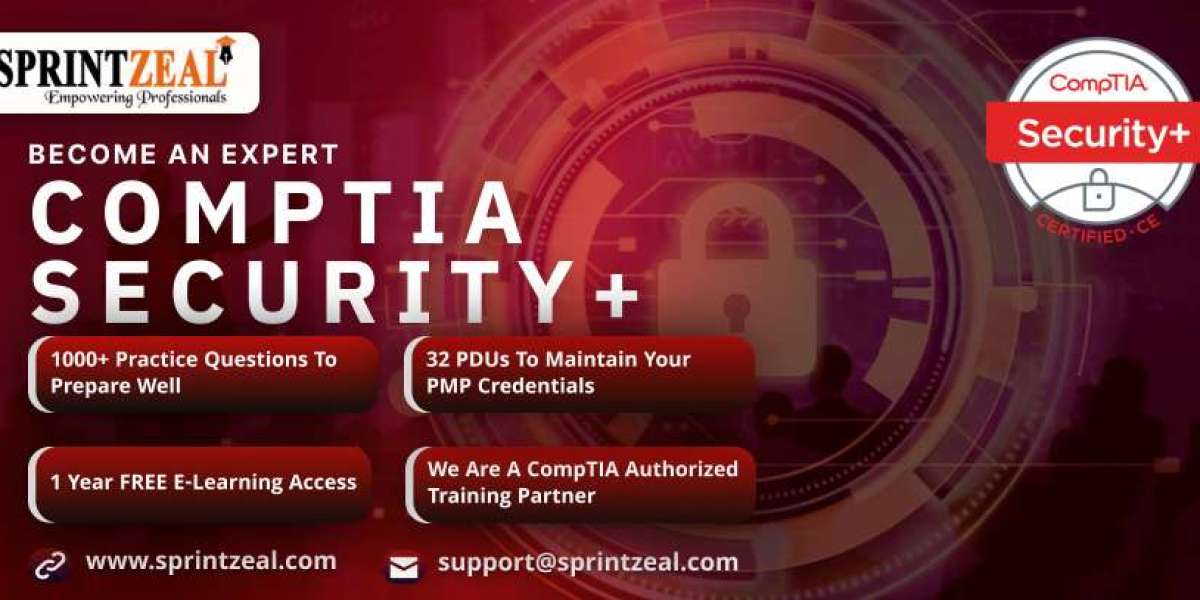The CompTIA Security+ certification is one of the most widely recognized and respected entry-level cybersecurity certifications in the world. It provides foundational knowledge that is essential for anyone looking to pursue a career in cybersecurity or IT security. As cybersecurity threats grow in complexity and number, the need for qualified professionals with expertise in securing networks and systems is at an all-time high. If you’re planning to take the CompTIA Security+ certification exam, it’s important to prepare well to ensure success.
In this article, we’ll discuss effective tips and strategies for preparing for the CompTIA Security+ exam. These tips will help you better understand the exam structure, study methods, resources, and time management practices to increase your chances of passing the exam on the first attempt.
1. Understand the Exam Objectives
Before diving into the study materials, the first step in preparing for the CompTIA Security+Certification in Miami FL exam is to familiarize yourself with the exam objectives. The exam objectives are provided by CompTIA on their official website and are an essential resource for structuring your study plan. The current version of the Security+ exam (SY0-701) covers a wide range of topics that are divided into several domains. These domains include:
- Attacks, Threats, and Vulnerabilities: Understand different types of cyberattacks, such as phishing, malware, and social engineering.
- Architecture and Design: Focus on secure network architecture, cloud security, and risk management concepts.
- Implementation: Learn how to install, configure, and troubleshoot security solutions.
- Operations and Incident Response: Understand how to handle security incidents, monitor networks, and respond to security breaches.
- Governance, Risk, and Compliance: Learn about governance frameworks, risk management strategies, and compliance regulations.
By reviewing these objectives, you will have a clear roadmap of what to expect and which areas you need to focus on during your study process.
2. Develop a Study Plan
Effective preparation for the CompTIA Security+ exam requires creating a study plan that is tailored to your learning style, schedule, and available resources. Start by setting a realistic timeline based on when you plan to take the exam and how much time you can devote to studying each week. For instance, a study plan spread over 2 to 3 months gives you sufficient time to cover all topics thoroughly.
To create a study plan:
- Break down each exam domain into subtopics and set daily or weekly goals for each.
- Prioritize areas where you feel less confident, but make sure to allocate time to all domains.
- Schedule regular review sessions to ensure you retain the information you’ve studied.
- Include time for practice tests and mock exams to assess your progress.
A well-structured study plan will help you stay organized and on track throughout your preparation.
3. Use Official and Trusted Study Materials
CompTIA Security+ is a vast subject, and choosing the right study materials is crucial for efficient preparation. Official materials from CompTIA, such as the CompTIA Security+ Study Guide and CompTIA Security+ Exam Cram, are highly recommended because they cover all exam objectives and provide practice questions. You can also find study materials in the form of textbooks, online courses, and video tutorials. Here are a few options:
- CompTIA Official Resources: The official CompTIA Security+ Certification Guide offers a comprehensive overview of the exam topics.
- Books: Popular books for Security+ preparation include “CompTIA Security+ All-in-One Exam Guide” by Sybex and “CompTIA Security+ Study Guide” by Mike Meyers.
- Online Courses: Websites like Udemy, LinkedIn Learning, and Pluralsight offer online courses that can help you learn the material at your own pace. These courses are often taught by industry experts and may include quizzes and hands-on labs.
- Practice Exams: Use practice exams from reputable providers like ExamCompass, Professor Messer, and CertBlaster. These exams simulate the real test environment and help you assess your knowledge and exam readiness.
When using study materials, ensure they are updated to the latest exam version (currently SY0-701) to avoid outdated information.
4. Focus on Hands-On Experience
While theoretical knowledge is important for the CompTIA Security+ exam, hands-on experience with security tools and techniques is equally valuable. The exam focuses on practical application, so it’s important to familiarize yourself with various security practices. Here’s how to build hands-on experience:
- Lab Work: Set up a virtual lab environment using tools like VirtualBox or VMware to simulate security attacks and defenses. Practice tasks such as configuring firewalls, setting up VPNs, and using network security tools.
- Use Free Tools: Take advantage of free security tools such as Wireshark, Nmap, and Metasploit. These tools are widely used in the cybersecurity field, and practicing with them will enhance your understanding of security operations.
- Try CTF (Capture The Flag) Challenges: Participate in CTF challenges, which are competitions designed to test your skills in cybersecurity and problem-solving. These challenges can provide you with practical experience in various areas, including network security, cryptography, and incident response.
By applying your knowledge in real-world scenarios, you will reinforce your learning and build confidence for the exam.
5. Practice with Sample Questions
Once you’ve covered the exam objectives and studied the relevant material, practicing sample questions and taking mock exams is a critical step in your preparation. Sample questions will help you familiarize yourself with the exam format and question types, including multiple-choice and performance-based questions.
- Multiple-Choice Questions: These questions test your theoretical knowledge of security concepts. Practice answering these to improve your ability to recall information quickly and accurately.
- Performance-Based Questions: These questions test your ability to apply security concepts in a simulated environment. They require you to solve problems based on real-world scenarios. Practicing performance-based questions will help you think critically and react appropriately in an exam setting.
You can find practice questions in study guides, online courses, and dedicated practice test platforms. Aim to complete multiple practice tests and review the answers carefully to understand why you got certain questions wrong.
6. Join Online Communities and Study Groups
Joining online forums, discussion groups, and study groups can be a great way to supplement your studies. Communities such as Reddit’s r/CompTIA, TechExams, and Professor Messer’s Security+ Study Group offer support, advice, and answers to questions. Engaging with other students or professionals who are preparing for the exam can help you stay motivated and provide additional insights into difficult concepts.
Study groups, both online and offline, offer a collaborative environment where you can share resources, ask questions, and discuss topics you find challenging. Teaching others is a great way to reinforce your own understanding.
7. Stay Consistent and Take Breaks
Consistency is key when preparing for any exam. Devote time to study each day, even if it’s just 30 minutes or an hour. Consistent study sessions will help you retain the material over time and prevent burnout.
At the same time, make sure to take regular breaks to avoid fatigue. Overloading your brain with information without adequate rest can lead to reduced focus and retention. Use techniques such as the Pomodoro Technique—study for 25 minutes, then take a 5-minute break. After four sessions, take a longer break (15–30 minutes).
8. Review and Reinforce Concepts Before the Exam
As your exam date approaches, focus on reviewing key concepts and reinforcing any weak areas. In the final days leading up to the exam, don’t try to cram new information. Instead, focus on:
- Reviewing your notes and summaries.
- Going through practice exams and focusing on the questions you found difficult.
- Reviewing any areas where you had difficulty during your studies.
Make sure you’re comfortable with the exam format and the types of questions you’ll face.
9. Stay Calm and Confident on Exam Day
On the day of the exam, make sure you’re well-rested and prepared. Avoid last-minute cramming, as it can lead to unnecessary stress. Arrive at the testing center with plenty of time to spare, or if taking the exam online, ensure your computer and internet connection are working properly.
During the exam, read each question carefully, manage your time wisely, and stay calm. If you’re unsure about an answer, move on and come back to it later if time permits.
Conclusion
Preparing for the CompTIA Security+ exam is a rewarding experience that will provide you with valuable skills in cybersecurity. By following these tips—understanding the exam objectives, creating a study plan, using reliable study materials, gaining hands-on experience, and practicing with sample questions—you’ll be well on your way to passing the exam. With dedication and consistent effort, you can earn your CompTIA Security+ certification and open the door to a successful career in cybersecurity.








